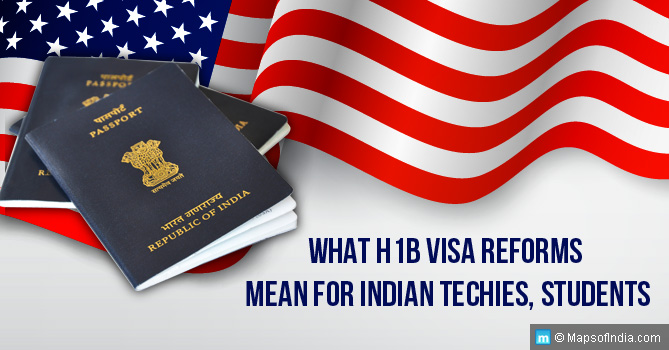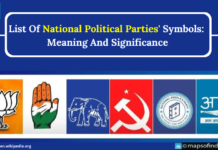The Trump Administration has decided to tackle the immigration policies of the US immediately after banning refugees and travellers from seven predominantly Muslim countries. This time the strike will be closer home as the Trump Administration has drafted an executive order aimed at overhauling the work-visa programme. The US administration said on Monday, January 30, 2017, it had drafted an executive order to overhaul the H1B work-visa programme that software services firms based in India use to send skilled workers to the US.
While H1B visas are primarily to hire highly skilled workers in areas that lack top talent, there has been criticism from US politicians who feel that a majority of the visas are awarded to outsourcing firms from India who misuse the work-visa programme to bring low-level IT workers into the US.
The executive order aims towards designing the immigration policies which will serve, first and foremost, the US national interest.
US visa reforms may force Indian IT companies, including Tata Consultancy Services Ltd (TCS), Infosys Ltd and Wipro Ltd, which depend on H1B visas for recruitments, to make fundamental changes to their business strategies. They may have to shift work offshore or other near-shore centres or subcontract to US firms.
India’s software services industry, already facing pressures on profitability and revenue, will have to work towards hiring more American workers and raising salaries they pay to employees working on client sites in the US. This will erode operating margins by as much as 3 percentage points as per analysts.
What is H1B Visa?
H1B visa is a temporary visa issued under the non-immigrant visa category to temporary workers for employment in the US. As per rules, the employer has to apply for the visa petition with the US Immigration Department and once approved, the visa acts like a work permit which allows you to obtain a visa stamp and work in the US for that employer.
The US gives 65,000 H1B visas each year and an additional 20,000 more for foreign students in US. In 2016, till August, Indian workers had got 72 per cent of total H1B visas issued worldwide.
As per the proposed order of the Trump Administration, the conditions for H1B Visas are as follows:
- Firms applying for H1B visas for its employees will have to hire Americans first.
- If the firm already employs foreign workers then priority will be given to the highest paid.
- The minimum salary for an H1B visa to be doubled, to around US$130,000 per annum from the present US$60,000.
- The draft also proposes to reserve 20% of the H1B visas allocated annually for firms that have 50 or fewer employees.
Reactions to the proposed clamp on H1B Visas
If the proposal is passed as a Bill at the House of Representatives, the reforms could shift the way American companies like Microsoft Corp., Amazon.com Inc. and Apple Inc. recruit talent. The draft bill aims to make it difficult to replace US employees with foreign workers. This will result in a body blow to companies such as TCS, Infosys and Wipro in its present shape and they will have to go in for wholesale changes.
Experts feel that the minimum wage limit will not rise beyond $100,000 as the US firms themselves will lobby to curb it at that level. Also the bill hopefully will take time to be passed, and firms such as TCS and Infosys will have ample time to devise a strategy which will see them withstand this bill without much affect on their profitability and revenue.
While the news of the proposed bill saw the Stocks of Indian software exporters plunging, TCS declined to comment on the development, whereas Infosys and Wipro didn’t immediately respond to a request for comment.
However, there is also a school of thought that this new ruling if passed by the US maybe a blessing in disguise for India.
In an interview with News18, Ashok Soota, former president of Wipro and Executive Chairman of Happiest Minds Technologies, said, “The effect will be two-fold: We will bring more of the work offshore, which is a long-term advantage for the Indian IT industry. Besides, it will drive Indian companies up in the value chain, because the kind of people who we send will be premium people, people who are consultants and highly experienced and skilled.” Credits: News18
“If skills aren’t available in the US and per law you can’t bring workers in then either the job will remain undone or the job will be shifted to India or some other location outside the US,” R. Chandrasekhar, president of software industry lobby group Nasscom, said in a phone interview with Livemint. “It will also be a big loss to the US since outsourcing jobs creates jobs directly and indirectly for the US economy.” Credits: Livemint
IT companies are India Inc’s biggest foreign exchange earners, and services exports, especially information technology, have helped in the acceleration of India’s economic growth. By tightening the H1B visa rules, the Trump administration is hitting at the core of India’s growth story. It is time to wait and watch. There is no doubt that the US needs the skill and talent that India outsources. In fact the potential effect of the H1B clampdown on business could probably lead to US firms weighing in on their government to not go ahead with the proposal.
Last but not the least, whenever there has been a change in US policies, Indian businesses have adapted and have converted the changes to their own advantage. Hopefully this time around also India will come out a winner with no affect on its economic growth.




